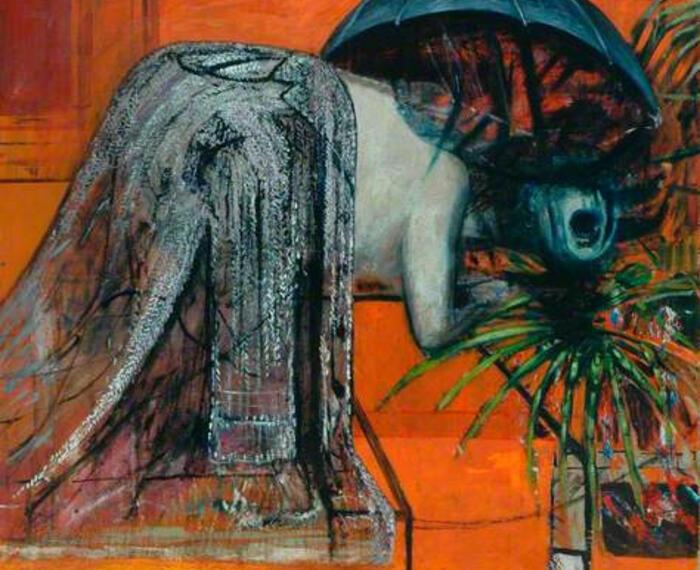Bani Abidi is a visual artist who works with video, photography and drawing. Abidi comments on politics, culture, power and memory. In her work, she blurs the boundaries between fact and fiction and illuminates the absurdities of everyday life. She often focuses on individual experiences to pose nuanced questions, telling the story of anonymous figures struggling to make small gestures of resistance.
In The Song (2022), an elderly man arrives at what seems to be his officially designated new abode. He sets down his solitary suitcase, opens a welcome pack of German food (which he will later replace with items he prefers) and unlocks the door to his balcony. Air and street noise come rushing in – as do recollections of equivalent moments in the world he has left behind. We watch as he plays with the lid of a whistling kettle, as if tuning it, and look on as he experimentally opens and closes windows, adjusting the acoustics of airflow, as if pressing or releasing the valves of a building-sized musical instrument. As time passes, he fashions makeshift kinetic objects, whose low-key, repetitive sounds seem to echo those from other rooms he has known (the whirr of an overhead fan, perhaps, or the hum of a generator). Symbols of comfort and consolation, this growing family of objects surround him like the resonant appendages of a one-man-band and cheerfully offer the back-up rhythm and accompaniment that allow him to give voice to his own unique, highly personal song.
Oldham has attracted migrant workers throughout its history, and in the 1950s and 60s citizens of the wider Commonwealth nations were encouraged to move to Oldham to make up the shortfall of workers and revive the local industry. Many people from the Indian subcontinent and Caribbean responded and today Oldham has established Pakistan, India, Bangladesh communities. This film gently shows the realities of migration and homesickness and associated yearning, traumas and loss, which is the case for many people who migrated here.

